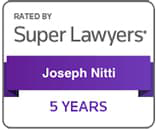Earnest money can help sweeten the deal when you make an offer on a property. It can tell the sellers that you are serious with your offer and intent.
However, earnest money can also cause issues if you do not fully understand what it is or how it works.
Earnest money definition
Realtor explains earnest money is a deposit on the purchase of a piece of real property. It is generally a significant amount of cash you must hand over through goodwill. Typically, the earnest money deposit is about 1% or 2% of the price of the property.
The money goes into escrow and you will be able to use it later to handle closing costs or to pay part of the down payment.
Earnest money loss
You may lose the earnest money you put up. If you fail to purchase the property due to something on your part, then you will not likely get the money back. For example, if you cannot secure financing, you will not receive your earnest money. Another common way to lose it is missing deadlines in the contract.
Earnest money issues
Earnest money can also lead to issues if you are a seller. If the deal does not go through, you and the buyer will have to sign papers ending the contract. When you do this, you will have to agree to release all or part of the earnest money. If you do not release it all and the buyer feels this is unfair, the buyer can not sign the release and keep your property held up in legal entanglements.
Before putting down earnest money or accepting it as part of a real estate deal, you must make sure you fully understand how it works and accept all risks.
